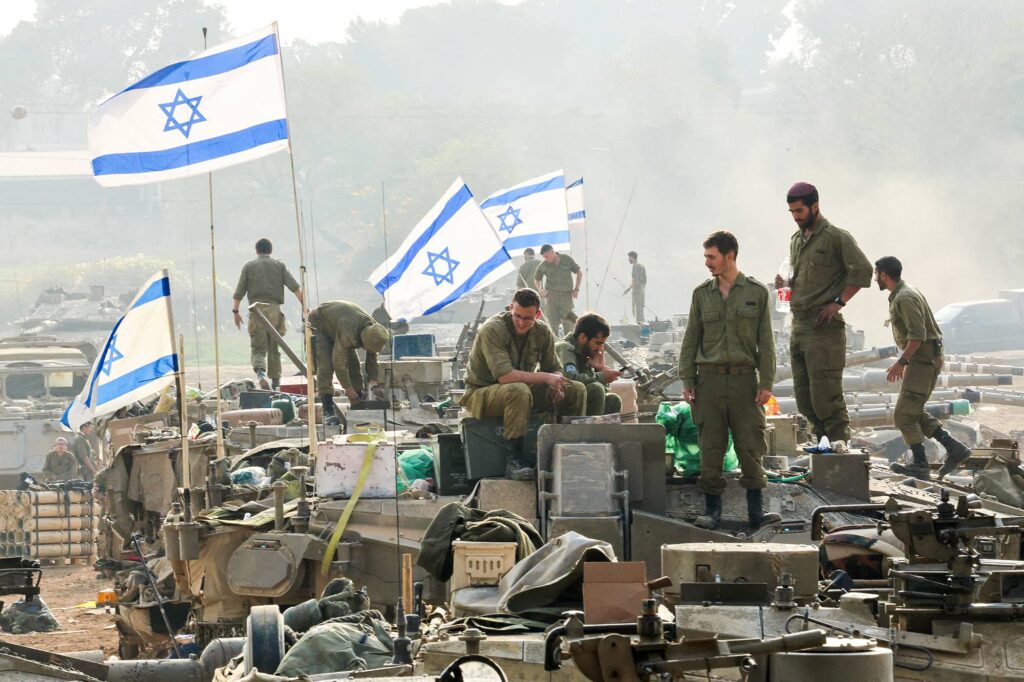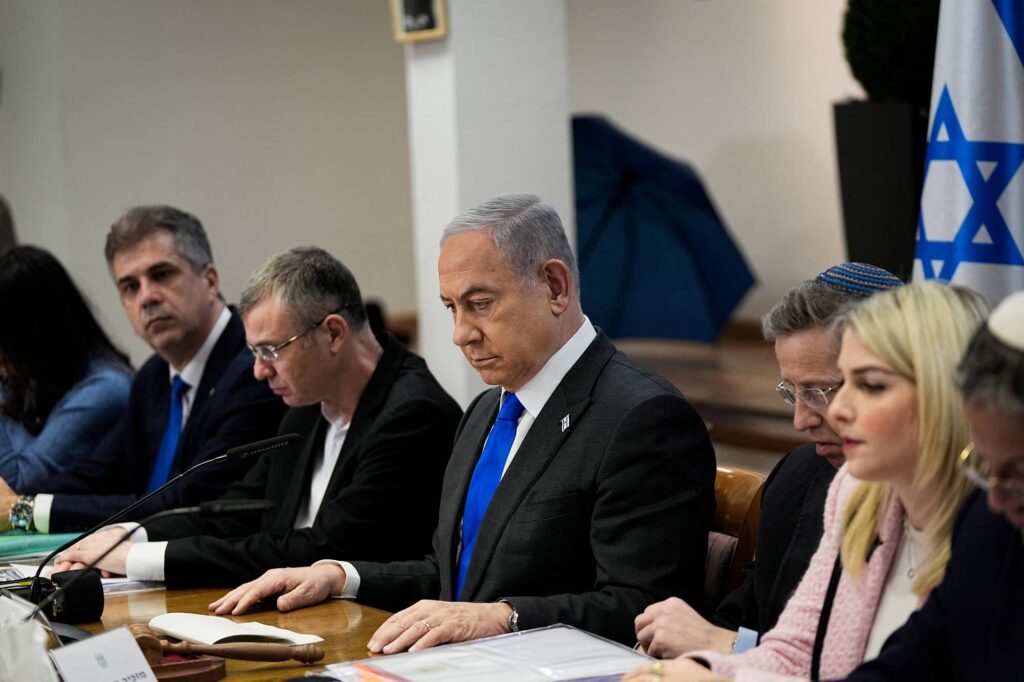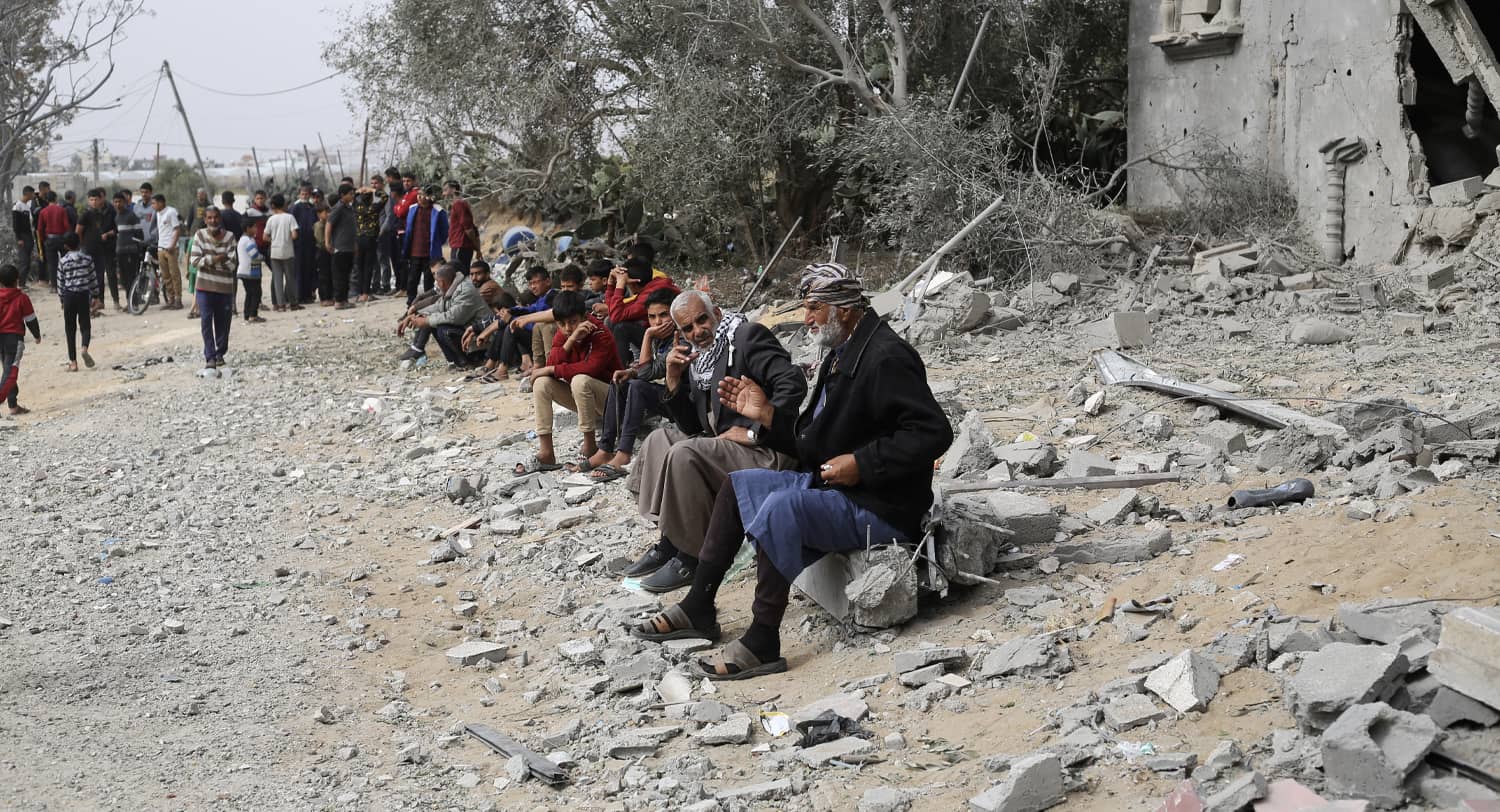Israel must finish the job of crushing Hamas in Gaza both as a military force and as a government. That’s the legitimate response to the surprise attack of October 7. This war aim also includes return of the hostages and minimizing Gazan civilian casualties to the extent possible. The Israel Defense Forces are in the process of achieving this war aim with the full backing of the Israeli public, despite all of the continuing skepticism among international pundits.
Dismantling Hamas in Gaza, however, is only step one. A strategy for the Day After in Gaza requires planning that integrates security needs, humanitarian supply, economic and reconstruction aid, civil governance and de-radicalization initiatives. (Another required step is pressing Hamas throughout its overseas network of support, including elements in Qatar, Turkey, the United States and elsewhere.) Without such a plan, Israel is on a trajectory in the postwar period to end up in a much worse situation than it was in before October 7.
In short, Israel is poised to lose the postwar by seeking to exercise control over Gaza, thereby becoming the occupying power. Israel could win the postwar by working with its ally the United States, and through the US with leading members of the international community, to form a temporary multinational mission for Gaza. Israel must relinquish its control of Gaza and transfer it to the multinational mission after defeating Hamas, in order to win the postwar.
International Legal Consequences
The Israeli public should understand the consequences of seeking to exercise control over Gaza after major combat is ended. They include, according to international humanitarian law, “the duty of ensuring the food and medical supplies of the population.” Things that may go wrong in Gaza in the future – food shortages, outbreaks of disease – would be the responsibility of Israel as the occupying power, the country that is seeking to exercise control over the territory of Gaza.
No one in Israel – not the government, media, military, or civil society – is informing Israeli citizens of the heavy burdens they are now in the process of assuming in Gaza. Senior government officials and members of Knesset seem to be under the false impression that Israel’s current postwar plans do not add up to control over and thus responsibility for Gaza. But they are wrong – and it isn’t a close call.
According to Prime Minister Netanyahu’s public statements, Israel will retain full security control over Gaza after the war and not just control, as it did before October 7, of most of Gaza’s land border and all of the sea border and airspace. Israel is now establishing a buffer zone inside Gaza, on roughly 14 percent of Gaza’s territory. Most importantly, the IDF and the internal security service today remain on the ground operating in areas already conquered, including through special forces raids on remaining Hamas groups, such as the continuing operations on Al-Shifa’ Hospital in Gaza City.
Furthermore, Israel has no credible plan to transfer civil governance authority to some other body or entity. Various government ministers are freelancing with their own separate and conflicting plans to do some things in postwar Gaza, but these have not been adopted by the government. In the meantime and to prevent chaos, the IDF will have to continue to exercise control over Gaza.
The wishful thinking of senior Israeli government officials is that they will identify, arm and develop the capacity of Gazan clans opposed to Hamas, and then transfer local governance responsibility to them (again, while maintaining effective overall security control). As a legal matter, this doesn’t absolve Israel of responsibility for Gaza, since it will continue to hold many of the legal indicia of control.
As a policy matter, reliance on traditional family clans to provide local government in Gaza was Israel’s policy from 1967 until the First Intifada broke out in 1988. There is no indication that such a “back to the future” policy will work in Gaza after 12 years of the Palestinian Authority followed by 17 years of Hamas.

Barriers to Postwar Planning
Why is Israel sliding into a postwar crisis in Gaza? Shouldn’t it develop a plan to transfer authority to a multinational civil and military force, preferably one organized and led by the US, to replace its forces in Gaza (while reserving the right to intervene for counter-terrorism purposes)? Many voices have urged Israel to adopt this kind of plan.
Two barriers prevent postwar planning.
The first, often cited in the Israeli and international media, is domestic politics. The current governing coalition wouldn’t be able to agree on any postwar plan whereby Israel relinquishes even partial control, so the issue is left off of cabinet agendas. Key members of the cabinet, especially Public Security Minister Ben Gvir and Finance Minister Smotrich, want Israel to remain in Gaza permanently, as do elements within Netanyahu’s own Likud Party.
Given the ability of this issue to split the governing coalition wide open, dissolve the government and lead to elections in the midst of a war, Netanyahu has decided not to bring it before the cabinet. He may have learned the following lesson from his first premiership 1996-1999, when his coalition broke up over implementation of the Oslo Accords: prioritize keeping the coalition together, await developments and react to them.
This highlights a general weakness of parliamentary systems like Israel’s. Fierce disagreements over issues like postwar dispensation are common to governments in wartime (recall the open disputes between the vice president and secretaries of state in the George W. Bush administration over Iraq). But such disputes in the US can’t result in the dissolution of the government. In parliamentary systems, where there is no presidential power and the prime minister is merely first among equals, such disputes can topple the government.
Second, Israel’s senior officials are uncomfortable with strategic planning, a reluctance natural to all bureaucracies. Operational plans are always more immediate, easier to implement and less risky. Preternaturally cautious officialdom everywhere, including in Israel, tends to shy away from strategies that may not work as planned. Furthermore, as I have noted elsewhere, Israel doesn’t prepare a national security strategy unlike many other countries and doesn’t prioritize this kind of planning.
In the postwar Gaza case, however, the risks of not having a postwar plan that transfers effective control are greater than those of adopting such a plan.

The Solution
Temporary governance of the 2.2 million Gazans must be an international responsibility, until such time as Gazans are able to effectively govern themselves living peacefully alongside Israel. The consensus of those who work and have worked with the Palestinian Authority is that it is not ready to assume the governance of Gaza, that the Authority needs to undergo a process of capacity-building and reformation.
Models for successful post-conflict operations, for instance in Bosnia and Kosovo, always have as a key element the US as organizer, with a majority of the funding and personnel supplied by others in the relevant region. That multinational model could work in Gaza as well, with the US as organizer alongside European and Arab partners.
The Palestinians have a legitimate interest in a political future independent of Israel. Israel has a legitimate interest in the security conditions of a hostile Gazan neighbor located less than 40 miles from its largest city. The workable solution is for Israel to negotiate with the US over the conditions of its transfer of authority in Gaza to a US-led multi-national body, a transfer in which it keeps sufficient ability to intervene in Gaza when needed to protect its security and in which it provides assurances of a Palestinian political horizon, also subject to governance conditions.
At present all eyes are on the upcoming Israeli military operation in Rafah. That operation involves evacuation of civilians from Rafah to the Muwasi safe zone along the coast of the Gaza Strip. The potential strategic win for the US and its allies is immense – the removal of a key Iranian proxy from control of a territory and a government.
For Israel’s postwar future, and in order to sustain the impending strategic win over Iran, the immediate task is breaking through Israeli political and bureaucratic barriers to adopting a postwar Gaza plan. Then the hard work of rebuilding Gaza with America, its partners and the Gazans can begin.

